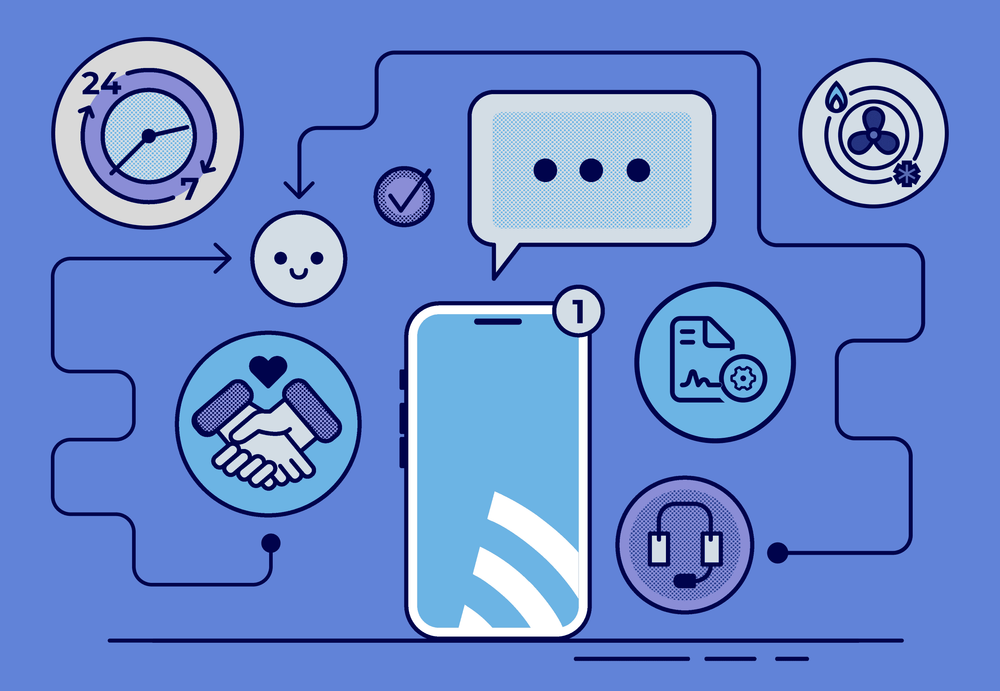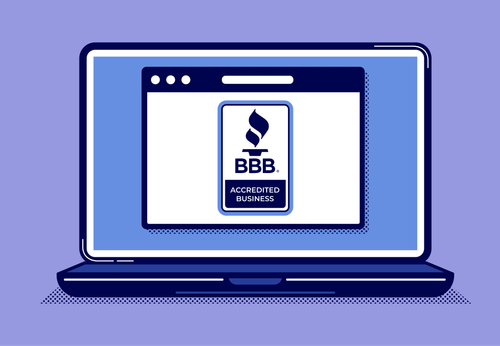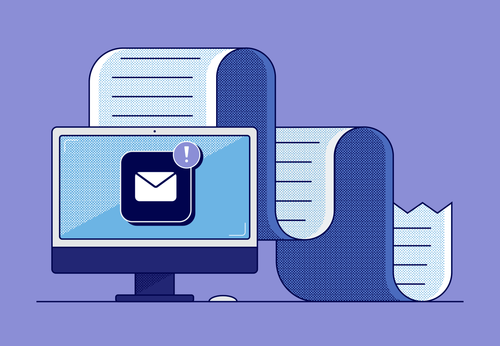Why Exceptional HVAC Customer Service Starts with the Right Tools
Great HVAC service goes beyond the job. Learn how the right tools help you streamline operations, boost customer satisfaction, and grow your business.
Jun 2, 2025

In the HVAC industry, your service isn’t just measured by how well you install an air conditioning unit or repair a furnace. It's measured by the customer's entire experience—from the first call to the follow-up after the job is done. For any HVAC business aiming to grow sustainably, customer service is not just an afterthought. It’s the foundation, and offering HVAC maintenance contracts can play a key role in building long-term relationships and ensuring ongoing client retention.
Strong customer relationship management leads to repeat business, referrals, and a reputation that helps heating and air conditioning companies stand out in a competitive market. When a homeowner feels heard, respected, and supported throughout their service journey, they’re more likely to return and refer others. To build and maintain those relationships, HVAC contractors must invest in the right tools—namely, HVAC CRM software that makes it easier to manage customer interactions, service calls, job histories, and communication at every touchpoint.
The result is a business that not only performs technically but thrives through positive, long-lasting customer engagement.
The Stakes: What Poor Customer Service Really Costs
It doesn’t matter how skilled your HVAC technicians are if your customer experience is chaotic. Missed service calls, poor customer communication, and lack of follow-up damage customer satisfaction and destroy trust. Potential customers who might have become loyal clients turn elsewhere because the business didn’t make them feel valued.
These aren’t just minor missteps; they directly impact your bottom line. One bad review can deter dozens of new customers. If your HVAC company doesn’t offer dependable, well-communicated service, your competitors will. And in an era where homeowners share their experiences widely online, reputation is everything.
In a service business where so much depends on trust, consistency, and professionalism, you can’t afford for customer service to be your weak point. HVAC contractors who don’t prioritize the customer experience risk being seen as unreliable, even if their technical work is excellent. This is where a reliable HVAC software comes in—by ensuring every interaction is tracked and every expectation is met.
The Impact an HVAC CRM Software can have on HVAC Customer Service
Great HVAC customer service goes beyond being friendly—it’s about building systems that ensure consistency and professionalism across the entire HVAC team. Whether you're managing one technician or a full fleet, establishing strong service standards improves your operational flow and enhances your customer experience.
Prompt, Respectful Communication
From the first inquiry to post-job follow-up, every interaction should be clear, timely, and courteous. HVAC customers expect to be kept in the loop—whether it’s confirming appointments, explaining delays, or reviewing work completed. Good communication builds trust and sets the tone for the entire experience.
Accurate HVAC Scheduling & Dispatching
Using HVAC scheduling tools helps prevent delays, double-booking, or missed appointments. When your office staff and field techs are aligned through HVAC software , you can ensure that the right person is at the right place, on time, every time.
Transparent Pricing & Quotes
Confusion over pricing is one of the top sources of customer dissatisfaction. Providing detailed, itemized quotes and sticking to your word not only prevents disputes but also reinforces your professionalism. HVAC software can store estimate templates and generate proposals quickly.
Organized Customer Information & Service Calls Tracking
Having access to service history and job histories allows your techs to show up informed. Customers appreciate not having to re-explain their situation or preferences, especially if they’re returning clients. HVAC software with detailed customer records makes this seamless.
Timely Follow-Up & Reminders
Sending automated reminders before appointments and follow-up messages after a job shows that you care. It also creates opportunities to gather feedback, request reviews, or offer maintenance service agreements. These small actions greatly improve client happiness.
Professional, Prepared Field Techs
Your field techs are the face of your HVAC company. Ensuring they are dressed appropriately, communicate well, and arrive at the job site with the right tools is essential. A mobile app connected to your HVAC software gives them all the job details and customer information they need before stepping onsite.
Personalized Service Through Detailed Records
Modern HVAC software allows your team to store notes within client profiles on customer preferences, equipment specs, and past issues. This enables a more tailored experience that shows customers you value their time and business.
Customer Relationship Management Metrics That Matter
Tracking performance is key to delivering consistent, exceptional HVAC customer service. HVAC software doesn’t just streamline workflows—it also provides visibility into key service metrics. These KPIs help HVAC business owners identify strengths, spot issues, and continually improve.
Key Metrics to Monitor
- First-Time Fix Rate – How often your HVAC techs resolve the issue on the first visit.
- Response Time – The average time between a customer request and your team’s initial reply.
- Time to Resolution – How long it takes from the initial service request to full resolution.
- Customer Satisfaction (CSAT) and NPS Scores – Direct feedback on customer experience.
- Review and Rating Volume – The number and quality of online reviews.
- Percentage of Service Calls with Follow-Up – Measures how thorough your customer care process is.
Tracking these metrics through your HVAC software or field service management software allows you to make data-driven improvements that directly impact your reputation and revenue.
Common Customer Service Mistakes HVAC Companies Make
Even the most experienced HVAC companies can fall into patterns that unintentionally damage customer relationships. Whether it's due to growth, limited staffing, or lack of streamlined business processes, these mistakes can accumulate over time, leading to negative reviews, fewer referrals, and declining trust. The good news? Most are highly fixable with the right HVAC service software and a few key process adjustments.
Not Following Up After a Job
Failing to check in after a service call can leave customers feeling like a transaction instead of a valued client. Even a quick follow-up text or email shows attentiveness and provides an opportunity to address unresolved issues, thank the customer, or request feedback. Proactive follow-up is the mark of excellent customer support and helps reinforce your brand’s reliability and encourages repeat business.
Missing Service Windows Due to Poor Scheduling
Inaccurate or manual scheduling systems often lead to double-bookings, long wait times, or late arrivals. These issues frustrate customers, interrupt their day, and signal unreliability. HVAC software with automated dispatching and real-time technician tracking reduces scheduling chaos and keeps customers informed and satisfied.
Forgetting Customer Preferences or History
When repeat customers have to re-explain their problem, model numbers, or prior service details, it signals disorganization. This makes it harder to build long-term loyalty. Storing service history, notes, and equipment data in your HVAC service software ensures your techs show up informed and ready to deliver personalized service.
Overlooking Post-Job Feedback
Feedback is a goldmine for improvement, but too many companies don’t ask for it or act on it. Ignoring feedback closes the loop on service and cuts off learning opportunities. Your software should automate satisfaction surveys or review requests after jobs, allowing you to monitor trends and make data-driven improvements.
Under-Communicating Delays or Changes
Running behind or needing to reschedule isn’t ideal, but silence is worse. When customers don’t receive timely updates, it leads to frustration and negative word-of-mouth. Proactive communication goes a long way in maintaining trust and setting the right expectations.
How to Fix These Issues with HVAC Software
All of these pitfalls can be solved—or at least dramatically reduced—by putting the right HVAC service software in place. With customer management tools and features like automated messaging, centralized customer records, job tracking, and real-time scheduling and dispatching tools, your team can stay ahead of issues and deliver consistently excellent service.
Ultimately, preventing these common mistakes helps by protecting and enhancing the customer experience at every touchpoint.
What to Expect From Modern HVAC Software (And What Features Actually Matter)
Software for HVAC companies is much more than a digital filing cabinet — it’s a full-service platform that helps you run a smarter, more customer-focused business. From managing service calls and customer data to automating communication and improving technician performance, the right software makes consistent service easier to deliver.
Mobility & Team Access
- A mobile app gives field techs real-time access to job notes, service history, and customer preferences.
- Live syncing keeps everyone, from the office to the field, on the same page.
Scheduling & Dispatching
- Smart HVAC scheduling tools reduce no-shows and overbooking.
- Dispatching features help assign the right tech to the right job.
Service Quality Tracking
- Dashboards and reports help track KPIs like resolution time and satisfaction.
- Job histories help your team learn from past work and improve.
Automation & Customer Communication
- Appointment reminders, follow-ups, and thank-you notes create a smooth experience.
- Templated messages ensure consistency.
Business Integrations & Tools
- Tools like inventory management, GPS tracking, and route optimization boost efficiency.
- CRM, accounting software integrations, and other tools improve accuracy and reduce friction.
With these features working together, HVAC software becomes more than just a digital tool — it becomes your foundation for delivering excellent customer service at scale. It helps you track what’s working, fix what isn’t, and ensure every customer interaction reflects the quality and professionalism your brand stands for.
The Role of Office Staff and HVAC Call Centers
Whether you operate a large HVAC company with a call center or a smaller business with one or two admin team members, HVAC software plays a critical role in how you manage incoming calls, assign jobs, and support field technicians.
Key Benefits:
- Easily access customer profiles and service history for informed communication.
- Reduce repetitive tasks with automation and templated emails.
- Route service calls efficiently and accurately using dispatching tools.
- Improve customer communication with status updates and real-time notifications.
- Capture and assign leads for sales reps using lead forms and integrations.
A reliable CRM helps your admin staff juggle multiple responsibilities without letting anything slip through the cracks. It increases transparency, speeds up scheduling, and ensures every customer receives consistent care, no matter who picks up the phone. It also allows better job assignments and resource planning, which are crucial for growing service businesses.
Real Results: How HVAC Businesses Improve Customer Service with FieldPulse
FieldPulse is built to support HVAC contractors with all the CRM features they need in one place. From job templates and automated appointment reminders to inventory tracking and service agreement management, it’s the best HVAC software for teams who want to grow without sacrificing quality.
HVAC contractors using FieldPulse report better customer satisfaction , fewer missed service calls, and more repeat business. It replaces spreadsheets and disconnected tools with one streamlined field service software platform designed for small businesses and growing service businesses alike.
Whether you're a solo HVAC tech or managing multiple locations, FieldPulse gives your HVAC team the tools to manage service locations, streamline sales processes, and deliver exceptional service every time. It also helps HVAC business owners focus on business management without being bogged down by day-to-day operations.
Compared to other options, FieldPulse is designed for customization, flexibility, and real-time visibility. Its CRM software and management software are built specifically for HVAC professionals, not just the average company. This purpose-built approach means you get key features that actually match your workflow, instead of trying to force-fit generic solutions. For HVAC business owners looking to gain more customers and streamline service operations, FieldPulse provides an unmatched return on investment. FieldPulse doesn’t just offer software—it empowers your business with ongoing support, business tips, industry news, and workflow strategies to help you grow smarter.
What is the best software for HVAC?
FieldPulse is widely recognized as the best software for HVAC companies. With features like a robust customer management database, drag and drop scheduling and dispatching, estimate and invoice management, businesses looking for an HVAC CRM report better customer relationships, quicker sales processes, and overall greater business health.
Conclusion: Build a Better Customer Experience with the Right Tools
In today’s market, great technical work isn’t enough. HVAC professionals need to build strong customer relationships to stand out. That means using HVAC software that helps them manage customer interactions, track quality of service, and communicate clearly at every stage of the customer journey.
The best HVAC CRM software doesn’t just organize your business—it enhances customer satisfaction, strengthens your brand, and sets your team up for long-term success. From service agreements and scheduling to mobile app access and job tracking, HVAC software is the central hub for delivering consistent, excellent customer service.
If you're ready to transform your HVAC business with tools that put the customer first , it's time to explore what FieldPulse can do.



